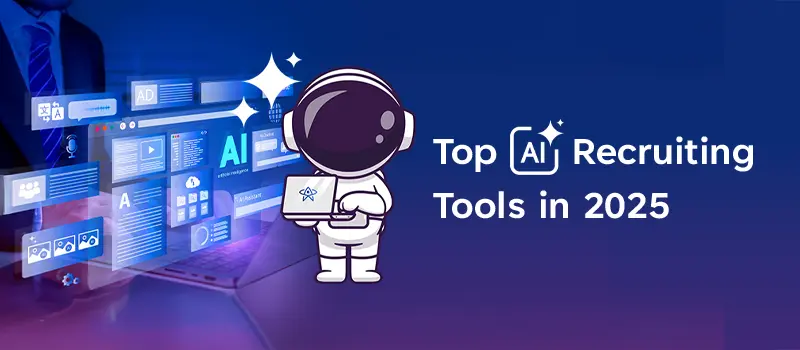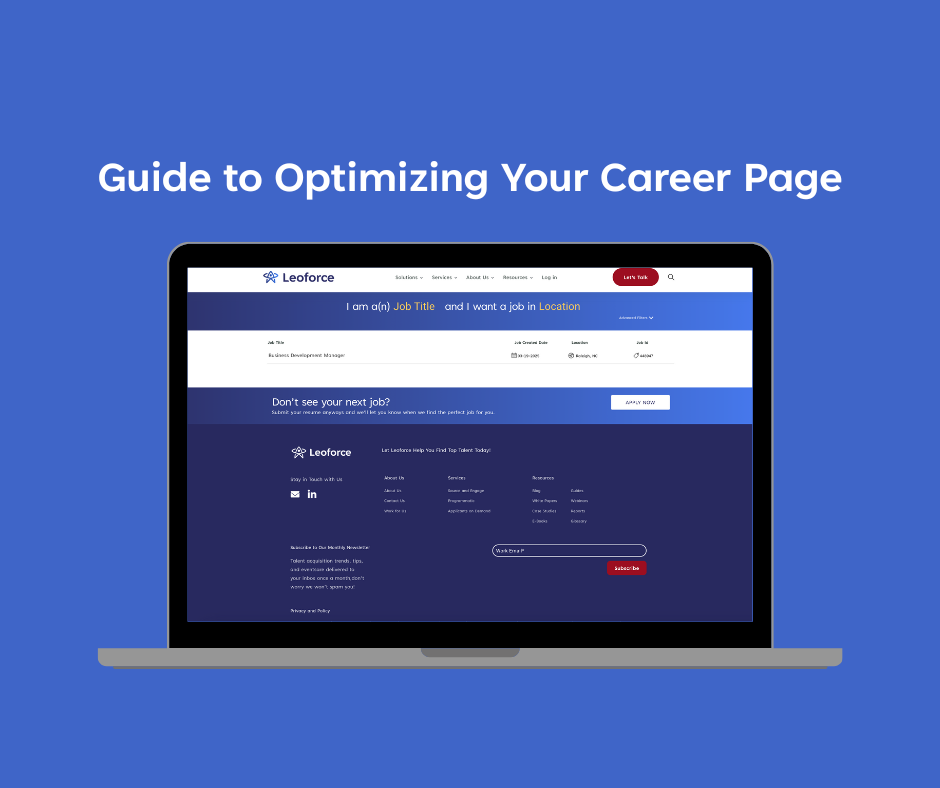Elevate Interviews: Strategic Questions to Ask Candidates!

Strategic interview questions for candidates are crucial for effective candidate assessment. Crafting tailored inquiries ensures a thorough understanding of a candidate’s strategic thinking prowess and suitability for the role. By delving beyond surface-level responses, recruiters can gauge candidates’ problem-solving abilities and strategic acumen, facilitating insightful conversations. Integrating strategic interview questions into the process empowers recruiters to navigate interviews with confidence, ultimately finding the perfect fit for the position. Here is a list of 31 strategic interview questions to ask candidates –
Strategic questions to assess role and company alignment
Aligning candidate objectives with company objectives is crucial for ensuring a harmonious and productive work environment. When candidates’ aspirations resonate with the company’s mission and values, it fosters mutual growth and success.
1. Can you walk me through your experience at a high level?
This question delves into the candidate’s professional journey, allowing them to provide an overview of their past roles, responsibilities, and achievements. By understanding their experiences in context, recruiters can assess the relevance of their background to the open position.
2. What piqued your interest about this opportunity?
By exploring what attracted the candidate to the opportunity, recruiters gain insights into the candidate’s motivations and priorities. Understanding why the candidate is interested in the role provides valuable context for assessing their potential fit within the organization.
3. What are you looking for in your next role?
This question aims to uncover the candidate’s expectations and objectives for their next career move. It provides insights into the candidate’s career goals, professional development interests, and desired work environment, helping recruiters determine if there is a match between the role alignment and candidate’s objectives.
4. What will you be assessing about our organization?
Reveals a candidate’s understanding of the organization’s culture and values, ensuring company culture fits. By asking about what aspects of the company the candidate will assess, recruiters can gauge the depth of the candidate’s research and drive for preparedness.
5. What are your compensation expectations given what you’ve learned about the role so far?
This question allows recruiters to manage expectations and negotiate effectively, ensuring a mutually beneficial arrangement for both parties. It also provides insights into the candidate’s understanding of their market value and the value they bring to the role, helping recruiters assess their fit within the organization effectively.
6. How do you envision contributing to our company’s mission and goals?
Evaluates the candidate’s thought process and provides an opportunity for candidates to showcase their strategic thinking abilities, innovative ideas, and commitment to driving success, ensuring a strong alignment with the company’s mission and vision.
Strategic questions on experience and opportunity interest
In navigating the interview process, probing into candidates’ past experiences and motivations is pivotal for understanding their candidate experience and assessing their interest in the job opportunity. Each question in this segment serves as a strategic probe, offering insights into the candidate’s background, motivation, and suitability for the role.
7. Can you elaborate on your professional journey and how it has prepared you for this role?
Understands the candidate’s career trajectory and assesses their candidate experience and alignment with the role requirements. It also provides insights into the candidate’s skills, competencies, and expertise, helping recruiters evaluate their suitability for the position effectively while conducting a candidate experience assessment.
8. What specific aspect of this job opportunity attracted you to apply?
Uncovers candidate motivation and genuine interest in the job opportunity, assessing their interest and motivation. It also offers an opportunity to evaluate if the candidate’s career goals and aspirations align with the responsibilities and opportunities offered by the position, ensuring a cultural fit and conducting a job opportunity interest assessment.
9. In your view, what key skills or experiences make you a strong fit for this position?
Allows the candidate to highlight relevant strengths and experiences, demonstrating their candidate experience and suitability for the role. It also offers an opportunity for candidates to align their skills and experiences with the requirements of the role, ensuring a strong match between their qualifications and the job opportunity, while conducting a motivation assessment.
10. How does the role align with your career aspirations or future goals?
Gauges if the candidate sees the role as a stepping stone or long-term commitment, assessing their motivation and alignment with their career aspirations and future goals. Understanding the candidate’s career goals and future aspirations also provides valuable context for assessing their fit within the organization.
11. Can you describe a project or accomplishment from a past role that you believe is particularly relevant to this opportunity?
Asks for specific examples showcasing applicable experience, demonstrating relevant candidate experience and interest in the job opportunity. It offers tangible evidence of their capabilities and contributions, while also conducting a candidate experience assessment.
12. What do you hope to achieve in the first six months if you are selected for this role?
Understands the candidate’s immediate goals and vision for the role, assessing their motivation and interest in the job opportunity. It also assesses a candidate’s ability to think on their feet and start preparing for the job at hand and not wait for on the job training.
13. Based on what you know about our company, how do you think you can contribute to our team and objectives?
Assesses candidate understanding of the company and their potential contribution, evaluating their interest and motivation in contributing to the job opportunity. Additionally, it offers an opportunity for candidates to showcase their knowledge of the company and their readiness to make meaningful contributions to the organisation.
14. What questions do you have about the role or the company that can help you understand your potential fit better?
Encourages candidate-driven questions, revealing priorities and research depth, assessing their interest and motivation in exploring the job opportunity further. Understanding what questions candidates have about the role or the company provides valuable context for assessing their interest in the open position.
15. How do you think this role challenges you differently compared to your previous positions?
This question prompts candidates to reflect on their past experiences and identify how the role presents new challenges and opportunities for growth. By exploring how the candidate perceives the challenges of the role, recruiters gain insights into their readiness and willingness to step out of their comfort zone, while conducting a motivation assessment.
16. Can you share an instance from a previous role where you felt particularly fulfilled or accomplished?
This question allows candidates to reflect on past experiences that were personally meaningful and rewarding to them. By sharing instances of fulfillment or accomplishment, candidates offer insights into the type of work or achievements that are satisfying to them.
Strategic interview questions about workplace experience
Understanding a candidate’s workplace experience is necessary for evaluating their suitability for a role. This segment delves into strategic interview questions aimed at uncovering insights into a candidate’s adaptability and skill set evaluation.
17. What kind of technology have you used in your most recent role and how have you used it?
This question not only assesses the candidate’s familiarity with relevant technologies but also provides insights into their adaptability and ability to leverage technological tools in the workplace.
18. What type of work have you enjoyed the most so far?
By understanding the candidate’s preferred tasks or projects, recruiters can gauge their areas of interest and passion, offering valuable insights into their workplace experience and adaptability to different work environments. This understanding aids in assessing job opportunity interest and motivation assessment.
19. Could you describe the team you work with right now?
This question allows recruiters to gain insights into the candidate’s collaboration and teamwork skills, as well as their ability to work effectively with diverse teams. Understanding the dynamics of the candidate’s current team provides valuable context for assessing their workplace experience and adaptability to different team structures.
20. How have you adapted to changes or challenges in your previous workplace?
By asking how the candidate has navigated changes and challenges, recruiters can assess their adaptability and problem-solving skills. This question offers valuable insights into the candidate’s ability as well as adaptability in dynamic work environments, contributing to skillset evaluation.
21. Can you provide an example of a successful project you led or contributed to in your previous job?
This question aims to uncover the candidate’s ability to deliver results and their level of contribution to projects, offering valuable insights into their workplace experience. Understanding the candidate’s past successes provides context for assessing their potential contributions to future projects and initiatives, aiding in job opportunity interest and motivation assessment.
Behavioral interview questions to ask candidates
Behavioral questions play an important role in assessing a candidate’s future performance by delving into past experiences. In this segment, we explore behavioral questions to understand candidates’ problem-solving and teamwork skills.
22. Tell me about an especially difficult problem you’ve had to solve.
This question prompts candidates to provide specific examples of their problem-solving skills, offering valuable insights into their typical behavioral responses. Understanding how candidates approach and overcome challenges provides valuable context for assessing their future performance in the role.
23. Tell me about a time you worked on a project under a tight deadline.
By asking about past experiences with tight deadlines, recruiters can assess candidates’ ability to manage time effectively, prioritize tasks, and deliver results under pressure. This question offers insights into candidates’ behavioral responses to stress and time constraints.
24. Tell me how you work in a team and environment with a variety of priorities and opinions.
This question aims to gauge candidates’ teamwork and collaboration skills, as well as their ability to navigate diverse opinions and priorities. Understanding how candidates interact within a team environment offers valuable insights into their behavioral responses.
25. Tell me about a time when you had to learn a new skill at work.
By asking about past experiences with reference to skill acquisition, recruiters can assess candidates’ adaptability and willingness to learn. This question provides insights into candidates’ behavioral responses to new challenges.
26. Can you describe a situation where you went above and beyond your job duties?
This question allows candidates to showcase instances where they demonstrated initiative, creativity, and commitment to achieving exceptional results. Understanding how candidates exceed job expectations provides valuable insights into their problem-solving skills.
Self awareness questions to ask candidates
Self-awareness in candidates reflects their ability to recognize their strengths, weaknesses, and areas for personal growth. This segment delves into the significance of self-awareness in candidates, emphasizing personal growth, self-reflection, and self-awareness.
27. What are your areas of opportunity for growth?
This question prompts candidates to reflect on their weaknesses and areas for improvement, providing valuable insights into their self-awareness and commitment to personal growth. By acknowledging areas needing development, candidates demonstrate a level of self reflection essential for continuous improvement and professional advancement.
28. What’s something you believe you do really well?
A candidates’ ability to identify and articulate their strengths offers insights into their self-perception and potential contributions to the team. Acknowledging one’s strengths depicts self-awareness and a sense of self-assurance, both crucial for professional and personal growth.
29. What’s a professional accomplishment you are most proud of?
Sharing a professional accomplishment demonstrates self-awareness and pride in one’s work, providing recruiters with valuable insights into candidates’ achievements and motivations. A candidate’s ability to articulate their best accomplishments offers a glimpse into their values, priorities, and career aspirations.
30. What are the most important values and ethics that you demonstrate as a leader?
By probing about values and ethics, recruiters assess candidates’ self-awareness and alignment with company culture. Understanding and embodying core values essential for effective leadership demonstrate candidates’ potential to contribute positively to team dynamics and organizational success.
31. How do you handle stress and pressure in a professional setting?
This question gauges candidates’ self-awareness in stress management, offering insights into their coping mechanisms and emotional intelligence. Understanding one’s reactions to stress and pressure is essential for maintaining productivity and well-being in demanding work environments, highlighting a candidates’ adaptability and capacity for growth.
How to ask the most effective interview questions
Effective questioning techniques are crucial for a successful interview. Here are some tips for recruiters to employ effective questioning, interview techniques, and question sequencing for maximum impact.
1. Effective Questioning:
Effective questioning lies at the core of a successful interview. To maximize the impact of your questions, aim for a balance between open-ended inquiries and specific, job-related queries.
– Prioritize open-ended questions to allow candidates to elaborate on their experiences and competencies.
– Tailor questions to the specific requirements of the role, focusing on key qualities and skills needed for success.
– Prepare questions in advance to ensure a structured and focused interview that covers all relevant areas.
– For example,
“Can you walk me through a challenging project you completed in your previous role?”
– This open-ended question allows candidates to elaborate on their experiences and competencies, providing insights into their problem-solving skills and ability to overcome obstacles.
Another example of effective questioning could be:
“Can you provide an example of a time when you had to collaborate with a team to achieve a common goal?”
This open-ended question allows candidates to demonstrate their teamwork skills and highlight instances where they have successfully worked with others to accomplish objectives.
2. Interview Techniques:
Mastering effective interview techniques is essential for conducting productive and insightful interviews. – Build rapport with candidates to foster open and honest communication.
– Practice active listening techniques to fully understand candidates’ responses and gather comprehensive insights.
– Use probing questions to delve deeper into specific areas of interest and clarify candidate responses.
– For example,
“I’d like to delve deeper into a specific project you mentioned. Can you provide more details about the challenges you faced during that project and how you addressed them?”
– This approach demonstrates active listening techniques, showing candidates that their responses are valued and encouraging them to provide detailed explanations.
– If a candidate mentions a particular skill or experience, such as leadership, you could follow up with a probing question like, ‘Can you share a specific example of a time when you demonstrated leadership skills in a challenging situation?’”
-This example showcases how probing questions can be used to extract specific examples from candidates, allowing recruiters to gain deeper insights into their abilities and experiences.
3. Question Sequencing:
Carefully sequencing interview questions enhances the structure and effectiveness of the interview process.
– Identify key qualities and skills required for the role and prioritize them in question sequencing.
– Structure questions in a logical order, moving from general to specific topics to maintain coherence.
– Standardize question order and evaluation criteria to ensure fairness and consistency across all candidates.
– For example,
“Could you elaborate on how your previous roles have prepared you for this position?”
– This open-ended question encourages candidates to provide detailed insights into their relevant experiences and skills.
– Following up with, “What specific challenges did you encounter in those roles, and how did you overcome them?” deep dives into their problem-solving abilities, maintaining a logical progression in question sequencing.
Final thoughts
In conclusion, strategic interview questions are essential for identifying the ideal candidate. By mastering effective questioning techniques, recruiters can extract valuable insights and make informed hiring decisions. Embracing strategic interview techniques enables recruiters to confidently navigate interviews, ultimately finding the perfect fit for the position and propelling their organisation towards success.





